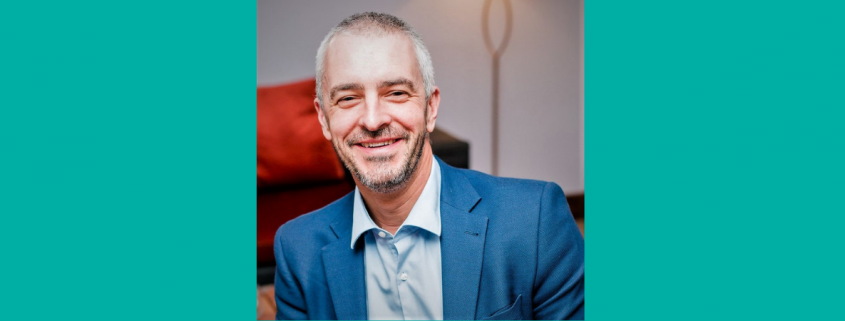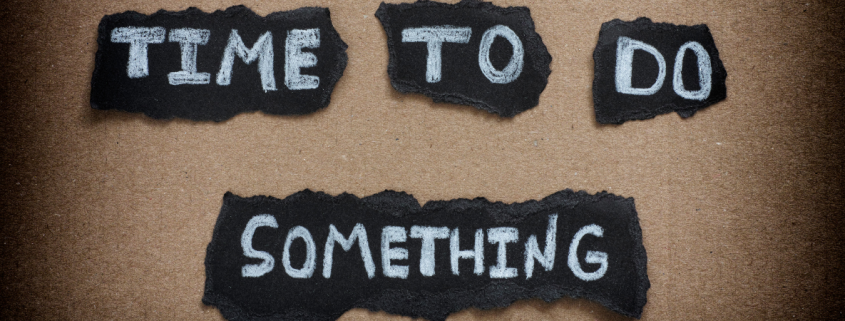Those of a certain age may have memories of the Grange Hill ‘Just say no’ campaign that came out in the 80’s to encourage the youth of the day to just say no to drugs. It was a clear message, sounded simple and made saying no the cool thing to do.
Little did I know how hard it would be to say no to my peers, to funding, to PR opportunities and generally to a traditionally structured work-life a good few decades later!
There’s so much talk these days about being mission-driven or mission-focused. It’s almost taken for granted that in our sector, this drives everything we do. But when your mission is (and I quote Mayday’s mission) ‘to model a Person-led, Transitional and Strength-based (PTS) Response alongside people going through tough times whilst attracting others to change the current deficit-based systems’, this isn’t as easy as it seems.
I remember the Board meeting where our Trustees gave us the clear direction that we were not to exist for existence’s sake and that we would only do work/ accept opportunities that kept us 100% true to our mission. I also remember the long meeting that followed where we unpicked what this would mean in reality. Cue a whole load of uncomfortable and difficult ‘no thank you’s.’
I heard someone say recently that ‘integrity doesn’t win you contracts’ and thought how true this is. But when winning contracts or accepting certain funding or PR opportunities, which require the showcasing of people’s trauma and mean drifting from your mission and sacrificing the fidelity of your work, tough decisions have to be made. This stance results in hard negotiations, handing back work, losing income, staff being TUPE’d or made redundant, people transitioning to other providers and living in a constant state of uncertainty. The human and financial cost of integrity is real and one we always acknowledge and honour.
Respectfully saying ‘thanks, but no thanks’ doesn’t always feel simple, nor does it feel cool.
We have heard through our ongoing Wisdom Inquiries, most recently Wisdom from the System with the New System Alliance, the raw and unfiltered feelings of people who are stuck in current support systems and services and those who work within them. It’s not an easy read and having the bravery to listen to what is being said and recognise that we have been (and sometimes still are) part of the problem is something that can either keep you up at night, compel you to ignore it or drive you forward. To know that by saying no to the norm, modelling the difference and carving a new path, you are honouring the voices and experiences of people having the toughest of times and moving toward a better system that works for people makes it much easier to bear the brunt.
I have come to realise that leading systems change through influencing based on what we uncover through our PTS work at the grassroots, is not an easy job, nor one for the faint-hearted. Taking risks that others can’t, choosing to be small and agile over growth, being willing to be unpopular, challenging what is thought of as sector best practice, standing by the voices of people who have felt voiceless and angry requires a whole new level of nuanced understanding and resilience. Both organisationally and personally.
But upon reflection, saying no to what didn’t fit our mission, actually opened up a whole new world of ‘yeses!’
Saying no to delivering traditional deficit-based work meant saying yes to the evolution of a person-led and strength-based response (the PTS) so that people have a more dignified experience and can transition out of their tough times more sustainably.
Saying no to organisational growth for the sake of it or as the expected thing to do meant saying yes to working with like-minded partners to jointly model the PTS and the mission to bring about change in new areas across the UK.
Saying no to deficit-based contracts meant saying yes to working with ‘enlightened’ commissioners and testing the PTS in partnership to inform a new person-led way of commissioning.
Saying no to providing supported housing* and the income that came with it meant saying yes to becoming a small, focused and agile group of social activists all working to shine a light on what works.
Saying no to pouring energy into bringing down the old system meant saying yes to attempting to model a new person-led system alongside a UK wide movement of amazing and passionate people who believe that paradigm shift is possible.
The era of saying no and moving away from the system has brought so much learning as we have been innovative and attractive to funders wanting to test and grow with us. But we’re embarking on a new era, where the reality of trying to survive in this new world longer term is a stark one. The uncertainty of change and the vulnerability of operating outside of the system is ever-present.
This has also led to the daunting reality of what financial stability means when your way of working isn’t prescriptive and continues to evolve and change from one month to the next. There is both a stark reality and real discomfort in putting a price tag on change and where the outcome and path aren’t rigidly set, it can feel like a hard sell.
Funding innovation only lasts for so long and traditional charitable means of generating income don’t seem to fit when you’re no longer a traditional charity. Working within and outside of a system whilst trying to evolve a new person-led system is a juggle and seeking funding from a system that you are ultimately moving away from can feel counterproductive and difficult to comprehend. Our approach to funding is having to further shift toward new investment opportunities and individuals that allow us to retain our flexibility and authenticity.
I’m often approached by sector leaders and practitioners asking how they too can transform their organisations as Mayday has and I’ve come to realise that we have been in a unique position to be able to do this. The radical organisational transformation that Mayday has been through may not be easily replicable, palatable or even possible for many organisations who are ultimately trying to bring about systems change as well as survive in a difficult world and within a system that is still a long way from changing!
But what we have created and what we can provide is something that others can use to point to as an example of what is possible. We have been able to take the risks, be brave and openly and honestly shared the warts and all learning so that others can save, at least some of the pain, of going it alone and starting from scratch.
So maybe saying no is cool after all! It’s certainly, never simple, and it’s amazing to have the conditions, culture and support to show what’s possible when we stand by what we believe in and go where the good energy is!
I know there will be many more tough decisions and new opportunities to come, and there is no quick win with this scale of systemic change; but with the mission and voices of people guiding everything we do, alongside the support of our amazing allies, we might just get there and be able to continue to take the risks so you don’t have to!
The slowest, who does not lose sight of their mission, is still more rapid than the one who is wondering without one.
Written by Lynn Mumford, Director of Development and Strategic Partnerships at Mayday. Read more like this?
*In 2020 Mayday said ‘no’ to supported housing – find out why here
For us to keep sharing opinions and voices that may not always be popular or heard we need your help:





